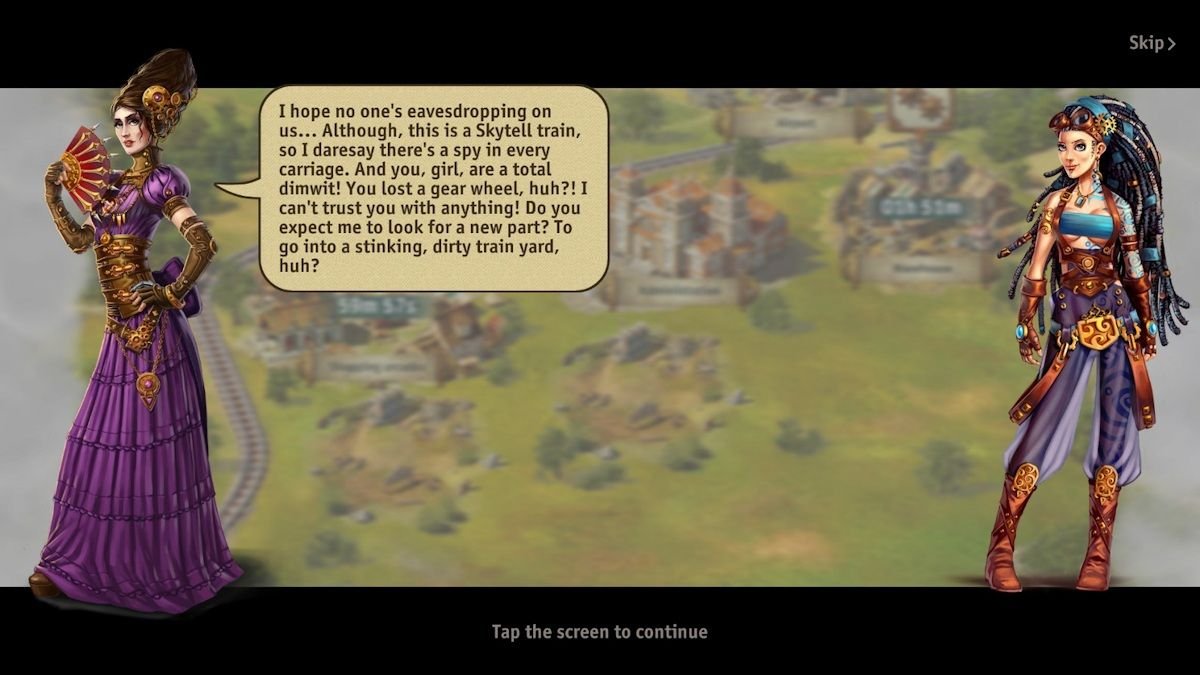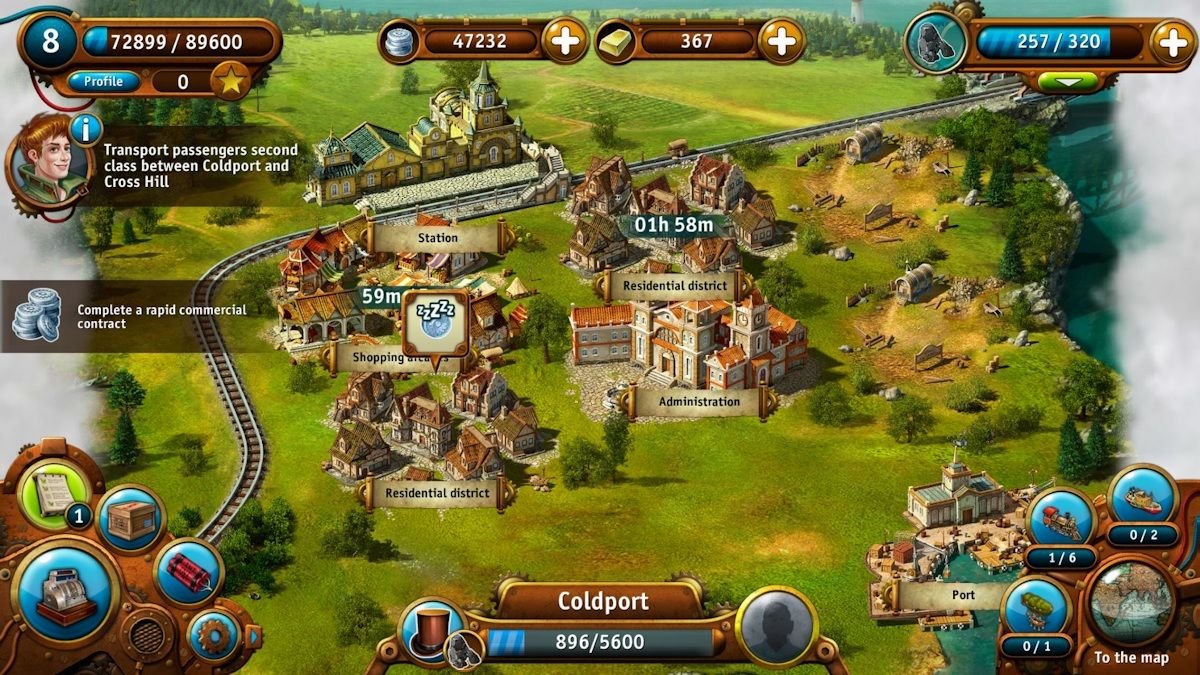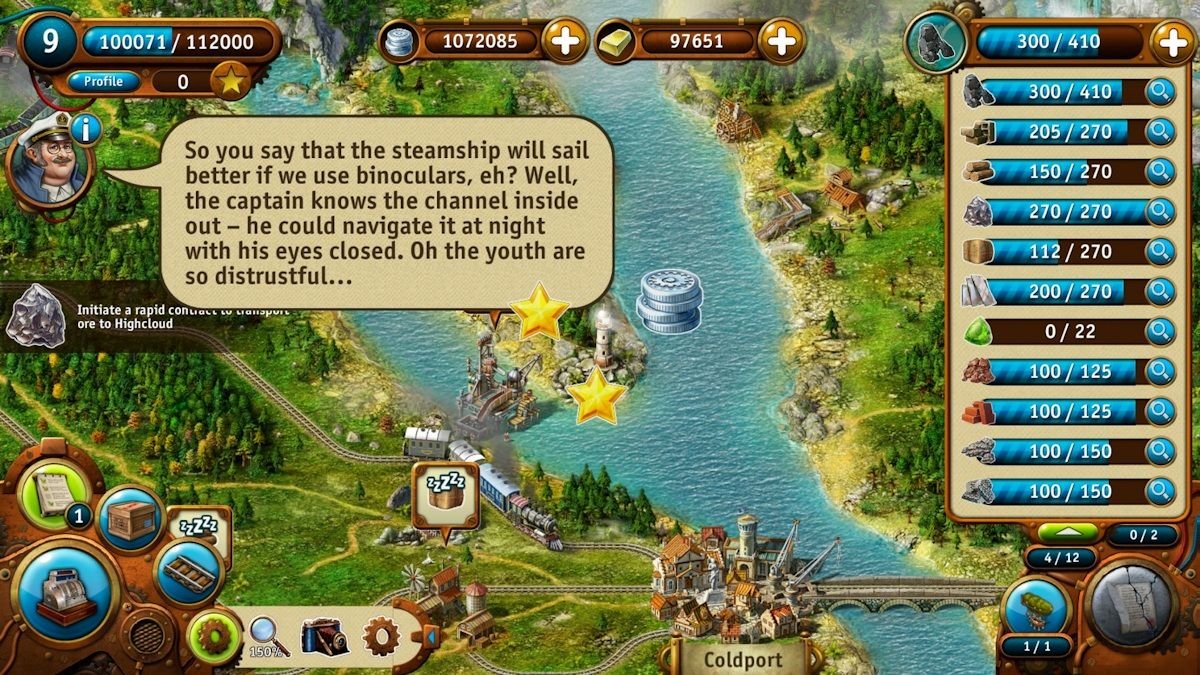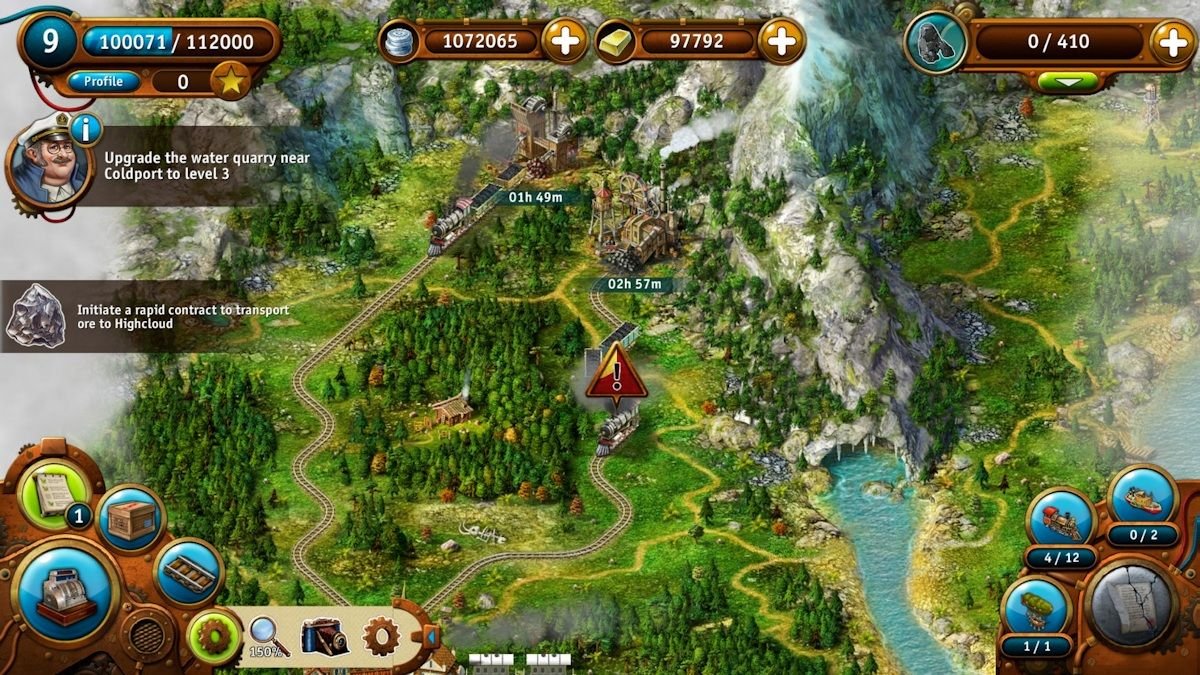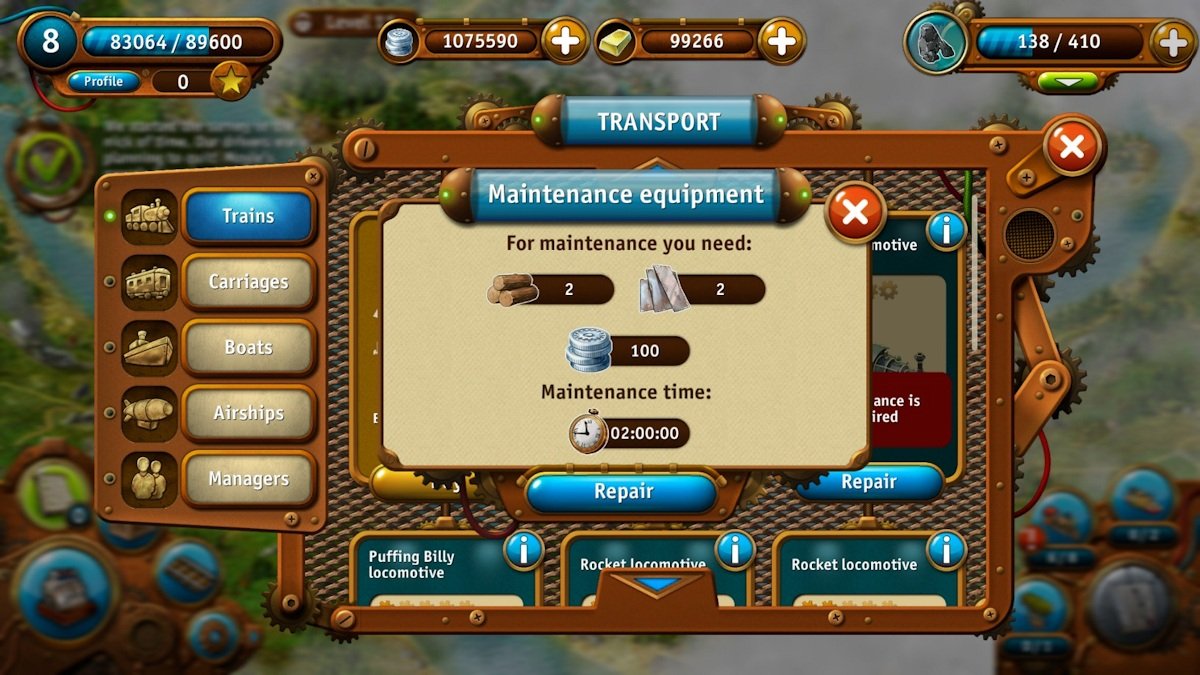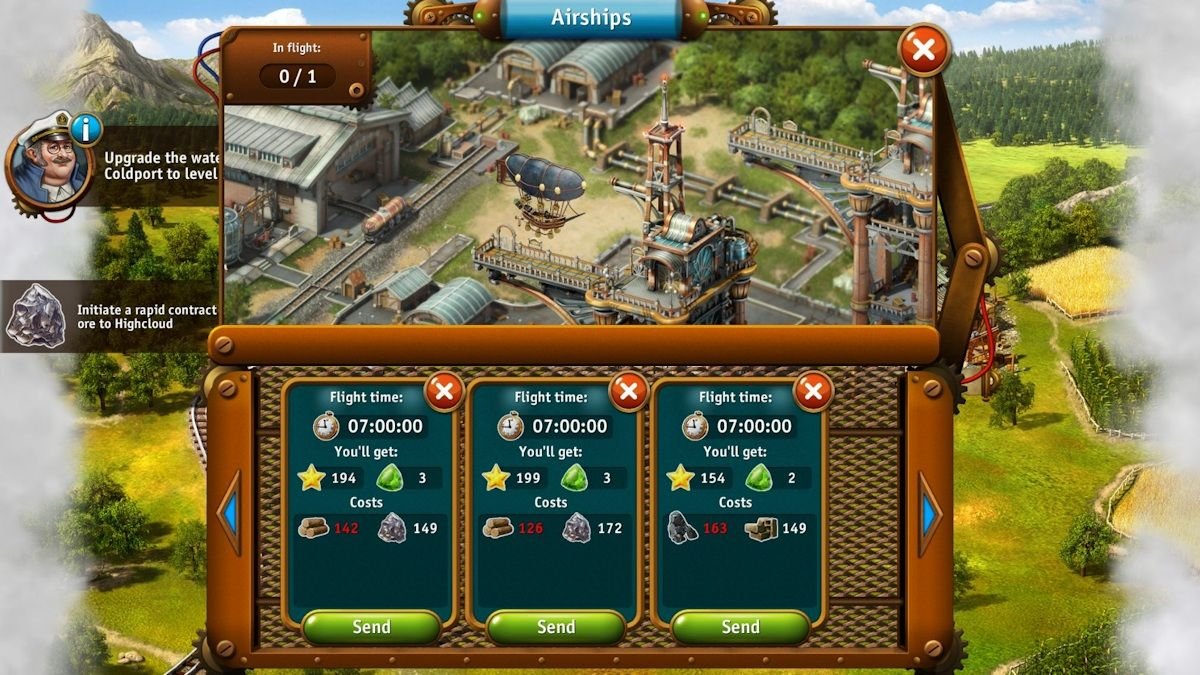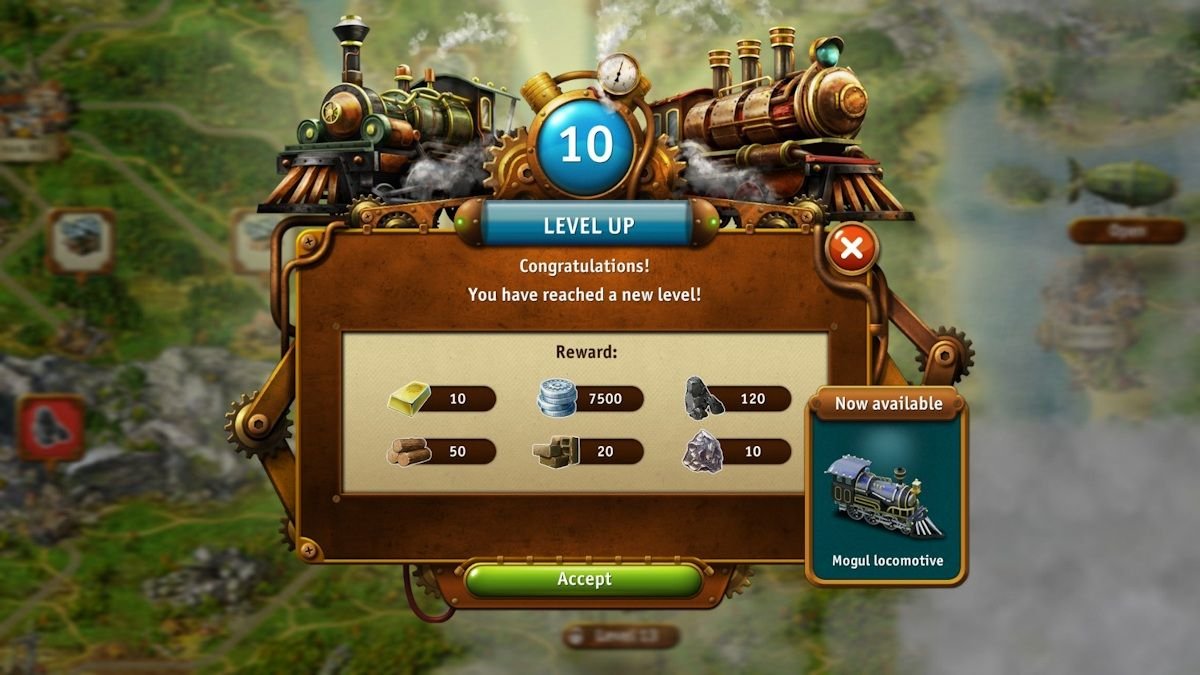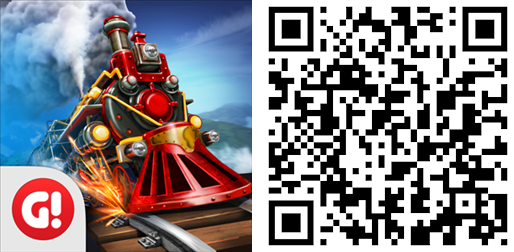Transport Empire: Windows Phone and Windows 8 review
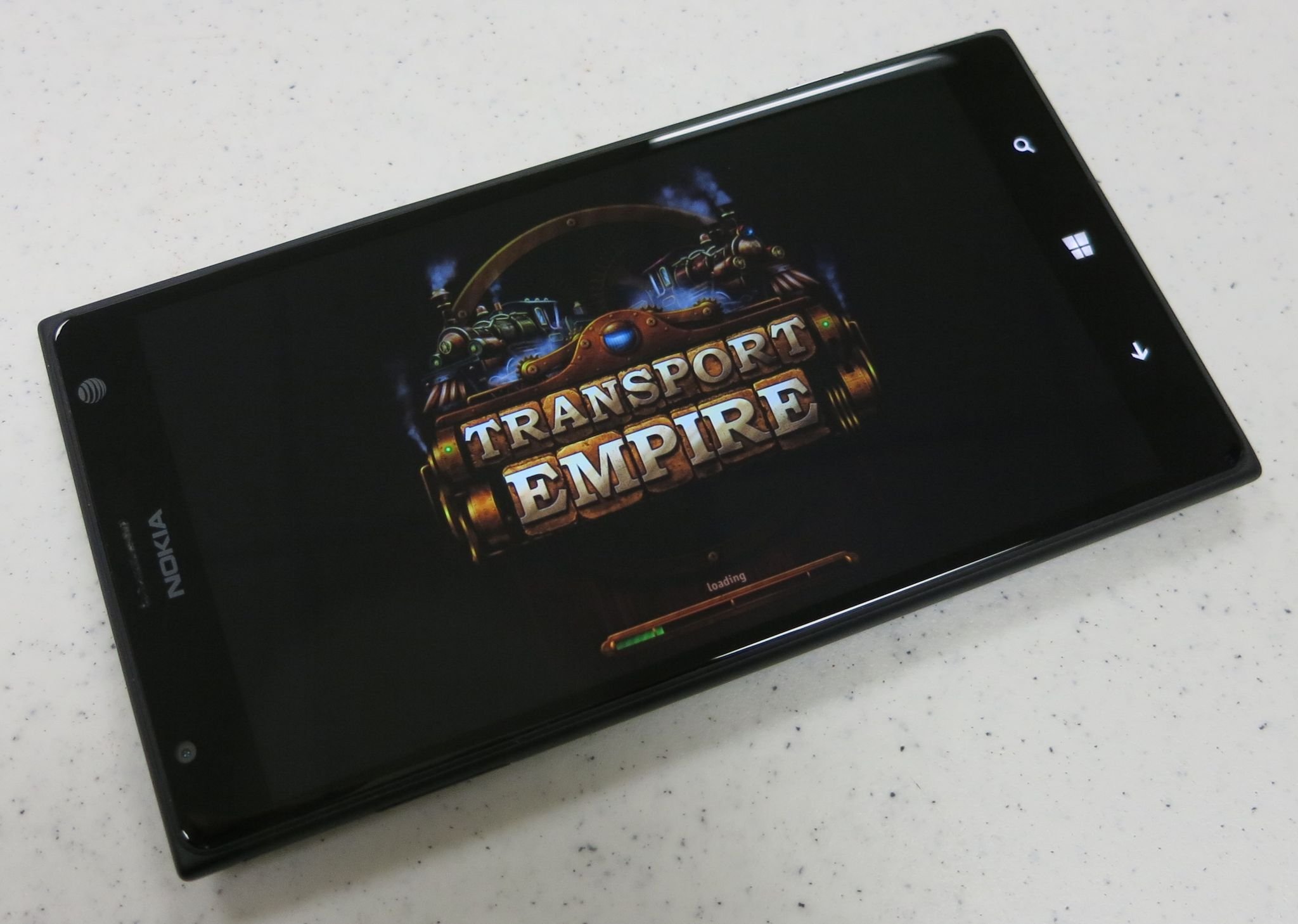
Every game publisher has its strengths, and many of them have their niches – particular things they focus on as well. European publisher Game Insight practically owns the city building genre on Windows Phone, having released numerous entries like 2020 My Country, The Tribez, and Big Business Deluxe. Of course they all vary in theme, and sometimes quality.
Lucky for fans of the genre, Game Insight has just released one of its best city building games on Windows Phone and Windows 8: Transport Empire. In Transport Empire, you'll manage a network of trains, ships, and airships (but mostly trains) as they travel across a fictionalized Europe to deliver goods and reap profits. If you like trains, this free to play title is worth a look.
Strangers on a train
Transport Empire unfolds a little more story than we typically see in city building games. Players take on the role of Lynn Skytell, a young woman who dresses skimpily and is determined to carve out a business empire of her own in a new land. Along the way she'll interact with her brother, uncle, a rival businessman/suitor, and many more characters. The dialogue is too dry to be of much interest, but the character art is just gorgeous.
Lynn starts out with access to a small portion of land, but she'll unlock new areas as the player levels up. Each location has several places for players to build things, such as mines, lodges, and other buildings. After building or renovating these locations, they'll start producing resources like coal, wood, and iron. These provide the ingredients needed to build new structures or send trains, etc. out on jobs. They can also be sold for silver when your warehouses get too full.
To actually harvest resources, you'll need trains (and later steamboats and airships). The game offers several trains to buy, each based on real-life classical trains. Sending a fleet of trains out and watching them zip along the tracks is actually pretty entertaining, if you like trains. Each run takes a different amount of time to complete, ranging from a minute to several hours. City builders are meant to be played in short spurts throughout the day, after al.
Those trains must also be equipped with carriages to hold passengers or goods. Different carriages are suitable for different resources. If you don't equip the right carriage for a run, the run will take longer or bring back less of the resource (I'm not sure exactly which). But buying a fleet of carriages takes time and money, so some players might just ignore the "inefficient carriage" warning and send the trains out anyway.
From city to city
Although you're not tied down to a single sprawling city in this game, cities still come into play. Players will open paths to various cities as the game progresses.
All the latest news, reviews, and guides for Windows and Xbox diehards.
These cities are much smaller than the genre norm, with only around 5-7 things to build in each one. One of those, the factory, produces steel. Steel constantly runs dry (annoyingly), so putting the factory to work is really important. Warehouses also provide a necessary storage location for resources.
The cities have their own reputation system that regulates when new upgrades will unlock. Earning a particular resource will fill up a city's reputation meter. Get it up high enough and you can build something new or upgrade an existing structure.
Missions and events
Like any city builder, Transport Empire constantly gives players one or more quests to complete. These add a little to the story, but mainly just keep players busy. You'll have to complete specific types of contracts at different locations, harvest a certain resource, and more. The rewards tend to consist of silver, experience, and sometimes resources.
As your trains and ships move across the map, they'll sometimes encounter a random event. You might need to clear trees from a track, help a traveler in need, or even just take advantage of a fishing opportunity. Accepting a random event always costs either silver or a resource, but it usually pays off with something valuable. Sometimes the vent is a bust and you lose whatever you spent though.
Random events are designated by exclamation marks on the map. If you don't select one quickly enough, it disappears. The system encourages players to stay with the game and pay attention to it for a while rather than just checking in and leaving.
Mapping your empire
The game map where you'll spend most of your time is colorful and finely drawn, retaining a satisfying amount of detail even when fully zoomed in. It could use some animation beyond player vehicles though, such as water movement or swaying trees.
Although the map screen is mostly well laid out, it does suffer from a UI issue. The quests that players receive all pop up along the left side of the screen. Frequently players will need to tap buildings, random encounters, and other map elements along that same side.
Far too often the game misinterprets my map taps as me selecting a quest, making it tough to collect resources or do whatever I intended to do. You can hide some of the quests by tapping the clipboard icon, but the main quest will remain to block whatever might be behind it. Allowing players to scroll the map farther over so that the intended object would no longer be under the quest description would be the best solution.
Resources and in-app purchases
Transport Empire's primary currency is silver. You'll constantly earn silver from completing quests, collecting it from buildings, and other tasks. Every job you take costs some silver, and usually another resource too.
Many trains, carriages, and other important items can be purchased with silver. But the best ones cost gold, the premium currency. Players never need premium vehicles, but they provide advantages like better reliability (less need for repair) and cargo capacity.
Traditionally, gold would be the sole resource for speeding up tasks like jobs and building upgrades. The cost of speed-ups in Transport Empire varies by the actual task, though. Some things cost gold to zip through while others cost silver or resources instead. That's a plus in my book.
The game does have a random drop mechanic that encourages players to spend gold, however. New structures on the map such as mines often require a manager before they start producing resources. You can find these managers as random drops when you perform jobs involving that resource, such as finding the logging site manager while collecting logs.
The final option is to hire a manager for 25 gold. Players who are determined not to make in-app purchases can probably get by without reaching for their wallets, but it might take a while to grind for managerial drops.
Facebook and cloud MIA
Other platforms allow players to invite Facebook friends to act as managers instead of grinding for the manager drop or spending gold. They also allow cloud saves via Facebook login.
Disappointingly, the Windows Phone and Windows 8 versions of Transport Empire don't have Facebook integration. That means we don't get the social features like hiring managers. And worse, we can't save to the cloud and/or hop back and forth between the same profile on Windows Phone and Windows 8.
The missing Facebook features are difficult to excuse, given that several other Game Insight titles for Windows do support Facebook. Hopefully the publisher adds the integration soon. And in the future, games shouldn't launch without relatively basic features that they have on other platforms.
As a workaround for the cloud saving issue, you can visit the settings menu and take a screenshot of your Support ID. Using that ID, Game Insight can recover an account if you ever need to reinstall the game. But it's a hassle.
Overall Impression
Missing Facebook aside, Transport Empire is one of the most distinctive city building games in Game Insight's oeuvre. Free to play city builders are often aimed at women, but this one's suggestive character art and focus on trains indicate a game designed for the dudes.
You do need some patience with this one, as much of the game involves sending trains on missions to collect whatever resource you're low on at the moment, and then coming back later in the day to collect. But setting up a bunch of jobs for your trains and then watching them zoom around the map is actually pretty fun on its own.
- Download Transport Empire for Windows Phone (Free)
- Download Transport Empire for Windows 8 and RT (Free)

Paul Acevedo was formerly a Games Editor at Windows Central. A lifelong gamer, he has written about videogames for over 15 years and reviewed over 350 games for our site. Follow him on Twitter @PaulRAcevedo. Don’t hate. Appreciate!
